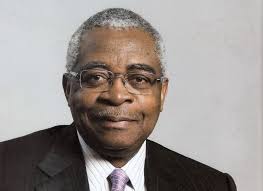In a landmark move aimed at bolstering Nigeria’s health sector, the TY Danjuma Foundation has signed a 10-year strategic partnership with the World Health Organization (WHO) to support sustainable health financing and improve primary healthcare, maternal and child health, and health systems resilience across the country.
Under this agreement, the Foundation will provide $2.26 million in flexible funding to the WHO Nigeria Country Office, which will run through December 2034. The partnership comes at a time when global health financing is under pressure, following major shifts such as the United States’ withdrawal from WHO funding during the administration of former President Donald Trump.
The announcement was made at a formal signing ceremony in Abuja, attended by key stakeholders in Nigeria’s public health and philanthropic sectors.
General Theophilus Danjuma (rtd.), founder of the TY Danjuma Foundation, said the decision to partner with WHO was largely influenced by global funding disruptions and the need for African solutions to African problems.
“The reason I partnered WHO is Trump. Even before he became second-term President, he accused the WHO of all sorts of things, and he cut off funding,” Danjuma explained.
Calling on Nigerians to embrace philanthropy, Danjuma added:
“Nobody is too poor to give. You can give your time, money, and other talents. We must teach young people the spirit of giving.”
The WHO Country Representative to Nigeria, Dr Walter Mulombo, described the partnership as a historic step in Nigeria’s journey toward sustainable and locally-driven health funding, adding that it serves as a model for domestic resource mobilisation.
“This collaboration with TY Danjuma Foundation is not just about money. It is about enabling WHO to work flexibly and adapt to evolving health challenges while aligning with Nigeria’s national health priorities,” Mulombo stated.
He said the partnership could inspire other local philanthropists and private sector players to invest in national health initiatives, setting a precedent for Africa-led development strategies.
Also speaking at the event, Dr Chikwe Ihekweazu, Acting Director-General, WHO Africa, noted the timeliness of the flexible funding model.
“This is deeply supportive of African-led solutions to African challenges. At a time when the global health sector is under financial pressure, such long-term support could not have come at a better time,” he said.
Representing the Coordinating Minister of Health and Social Welfare, Prof Muhammad Ali Pate, the Director of Public Health, Dr Godwin Ntadom, stressed that the partnership aligns with the government’s health policy goals, particularly in achieving Universal Health Coverage (UHC) and health-related Sustainable Development Goals (SDGs).
He explained that the focus on revitalising primary healthcare systems, especially for reproductive, maternal, newborn, child, adolescent health and nutrition (RMNCAHN), would improve health equity and reduce the risk of financial hardship among vulnerable groups.
“This partnership complements government efforts to improve access and quality across the healthcare value chain,” Ntadom stated.
The health ministry also praised the Foundation’s long-standing commitment to health system strengthening in Nigeria.
“TY Danjuma Foundation has played an enormous role in building institutional capacity, supporting innovation, and ensuring that funding meets the cultural and social needs of target beneficiaries,” he said.
The partnership signals growing recognition of the role of local philanthropy in filling funding gaps left by international donors and creating sustainable models for health development. It also underscores the relevance of strategic collaborations between governments, private sector entities, and development organisations in addressing Nigeria’s healthcare challenges.
This move is particularly crucial in a country where health financing remains low, with a majority of citizens paying out-of-pocket for services, and access to quality healthcare is still limited in rural areas.
Analysts say the partnership not only improves Nigeria’s prospects for health financing resilience but also positions the country as a regional leader in domestic philanthropy and health systems development.
As Nigeria works toward universal health access, the TY Danjuma–WHO collaboration is expected to contribute significantly to achieving long-term health security, improving life expectancy, and reducing the burden of preventable diseases.
